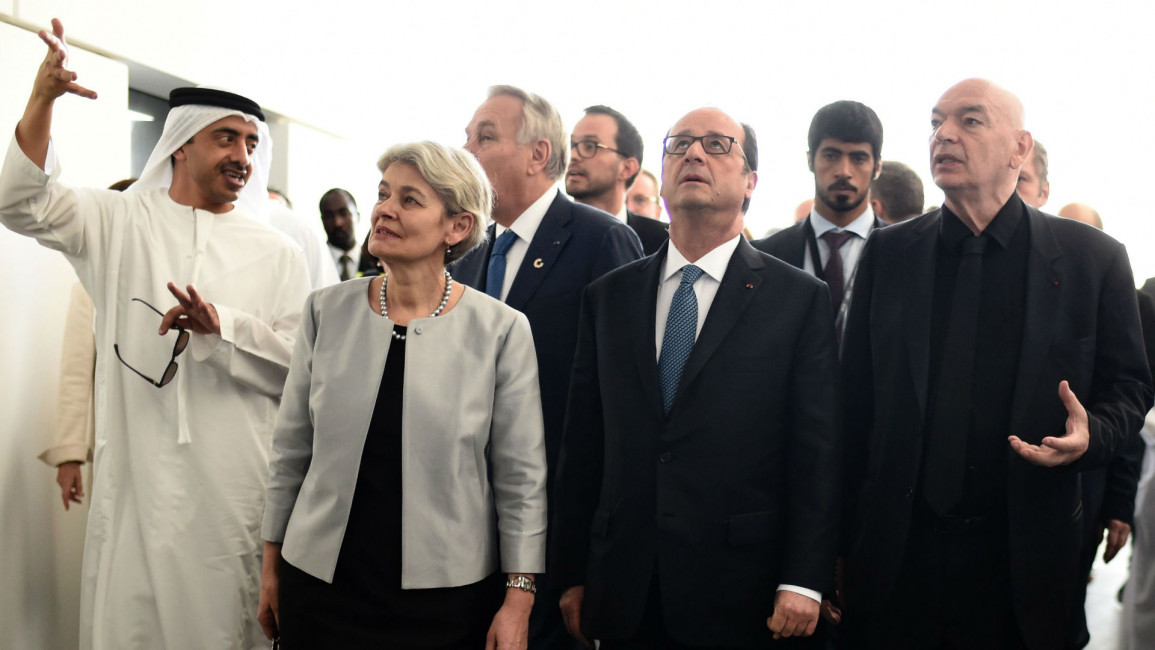Fund established to safeguard Middle East's cultural heritage
The fund aims to safeguard cultural heritage endangered by conflicts, finance preventive and emergency operations, combat the illicit trafficking of artefacts and help restore damaged cultural property, based on a draft declaration yet to be finalised during a conference in Abu Dhabi.
France's former Culture Minister Jack Lang, who heads the Paris-based Institut du Monde Arabe, said the heritage protection fund and safe haven network would be included in a declaration at the end of the conference.
A draft of the so-called Abu Dhabi Declaration, still being discussed by the participants at the two-day UNESCO-backed meeting, did not mention a value for the proposed fund.
But delegates have spoken of a $100 million target.
France, which along with the United Arab Emirates is spearheading the initiative, said it would contribute around $30 million (28 million euros).
Other states, including the Gulf Arab monarchies and China, have shown a willingness to contribute to the fund which would be based in Geneva, but without specifying amounts.
From Syria to Mali, Afghanistan to Iraq, militants have targeted priceless cultural heritage sites that they deem un-Islamic.
The world watched in dismay as Islamic State group extremists systematically destroyed monuments in the ancient Syrian city of Palmyra which they seized in 2015.
In Iraq, videos showed IS using bulldozers and explosives to destroy Nimrud, a jewel of the Assyrian empire south of Mosul, and ransacking pre-Islamic treasures in Mosul's museum.
Sovereignty
Participants hope the international network of refuge zones under discussion will be used to temporarily store cultural property endangered by conflicts or extremism.
But with sovereignty a sensitive issue, such assets would only be moved out of a concerned country after a request by its government, according to a source taking part in the discussions.
Art treasures should first be moved to a safe place within the country itself. Moving them to a neighbouring country would be a second option while sending them elsewhere would be a last resort.
Some countries, including Egypt, have expressed reservations about the creation of safe havens, a delegate told AFP.
Participants at the conference will call on the UN Security Council to support the initiative, according to the draft declaration.
The United Nations Educational, Scientific and Cultural Organisation will oversee the safeguarding operations.
French President Francois Hollande, who arrived in Abu Dhabi on Friday, will close the conference alongside Abu Dhabi Crown Prince Sheikh Mohammed bin Zayed Al-Nahyan, in the presence of around a dozen leaders including the presidents of Mali and Afghanistan.
The international government representatives as well as public and private institutions at the conference have been debating since Friday how to preserve heritage and treasured works of art.
The meeting coincided with an announcement by Swiss authorities that they had seized cultural relics looted from Palmyra, Libya and Yemen that were being stored in Geneva's free ports.


![President Pezeshkian has denounced Israel's attacks on Lebanon [Getty]](/sites/default/files/styles/image_684x385/public/2173482924.jpeg?h=a5f2f23a&itok=q3evVtko)



 Follow the Middle East's top stories in English at The New Arab on Google News
Follow the Middle East's top stories in English at The New Arab on Google News


